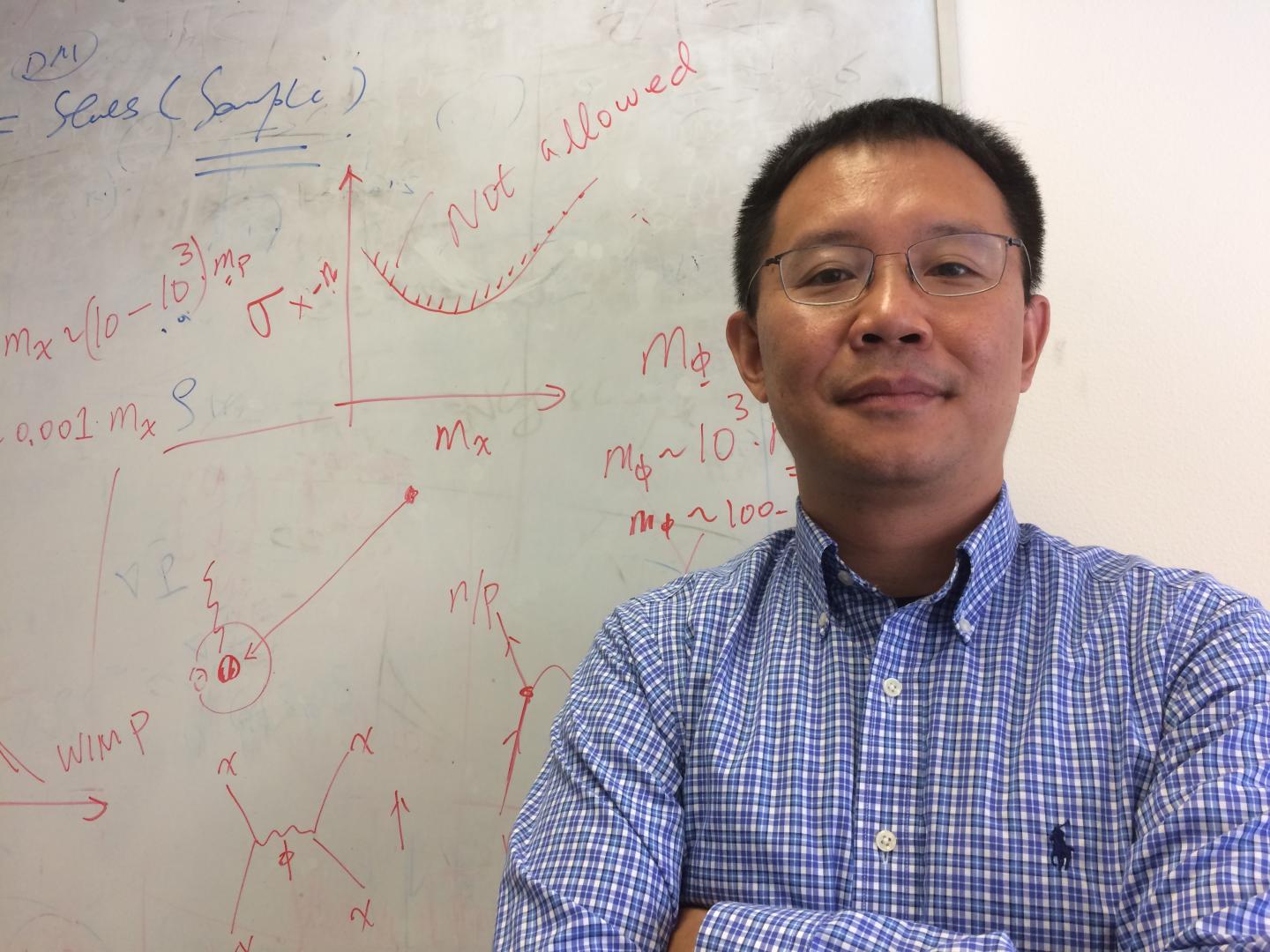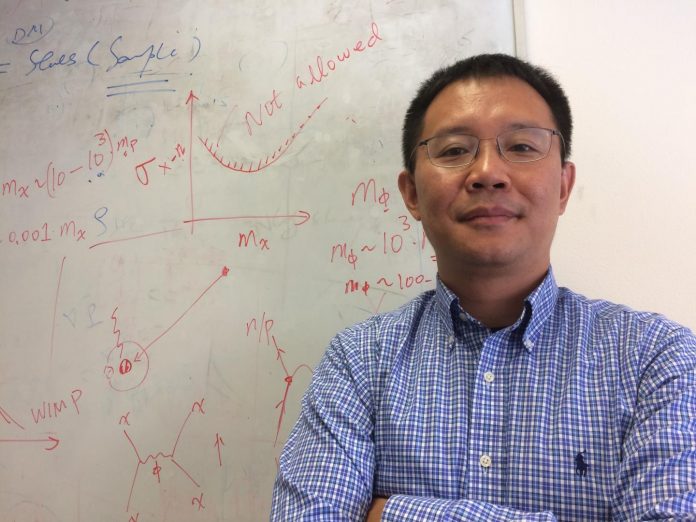
IMAGE: Hai-Bo Yu is an associate professor of physics and astronomy at UC Riverside.
view more
Credit: I. Pittalwala, UC Riverside
RIVERSIDE, Calif. — The John Templeton Foundation has supported research on a diverse range of subjects including creativity, forgiveness, and free will. Dark matter — nonluminous material in space that is understood to constitute 85 percent of the matter in the universe — can now be added to the list.
The foundation has awarded physicist Hai-Bo Yu at the University of California, Riverside, a three-year grant of about $235,000 to explore a new dark matter theory, “Self-Interacting Dark Matter,” which posits dark matter particles have strong self-interactions. The project title, “Exploring the dark sector,” refers to the unknown portion of the universe outside standard physics, including dark matter and dark energy.
Yu, an associate professor of physics and astronomy, will use numerical simulations and analytical modeling to study dark-sector interactions and compare their predictions with astrophysical observations of galactic systems, including spiral galaxies, satellite galaxies in the Milky Way, and newly discovered ultra-diffuse galaxies.
“In these systems, dark matter distributions exhibit a great diversity that seriously challenges the prevailing theory,” Yu said. “If dark matter is indeed hidden from the visible sector, our proposed method will be the only way to understand the nature of dark matter, one of the deepest mysteries in science.”
Unlike normal matter, dark matter does not absorb, reflect, or emit light, making it difficult to detect. Physicists have inferred its existence from the gravitational effect dark matter has on visible matter.
“Conventional dark matter searches are based on the assumption that it has sizable interactions with known particles in the visible sector,” Yu said. “Despite decades of effort, however, we have not observed positive signals. A pressing question confronts the dark matter research community: What’s the next step in tackling the dark matter problem?”
Yu recently collaborated with scientists to demonstrate the nature of dark matter can be unveiled even if it does not lead to detectable signals in conventional searches.
“The key observation is that microscopic interactions in the dark sector can affect dark matter distributions in galaxies over cosmological timescales, and thus leave their imprints on stellar kinematics and dynamics of galaxies,” Yu said.
A postdoctoral researcher and a graduate student at UCR will join Yu in the research.
The project is expected to result in research papers published in major peer-reviewed journals in the fields of astrophysics and cosmology. Findings will be also be presented at research conferences, workshops, and seminars.
###
The University of California, Riverside is a doctoral research university, a living laboratory for groundbreaking exploration of issues critical to Inland Southern California, the state and communities around the world. Reflecting California’s diverse culture, UCR’s enrollment is more than 24,000 students. The campus opened a medical school in 2013 and has reached the heart of the Coachella Valley by way of the UCR Palm Desert Center. The campus has an annual statewide economic impact of almost $2 billion. To learn more, email [email protected].
TDnews















